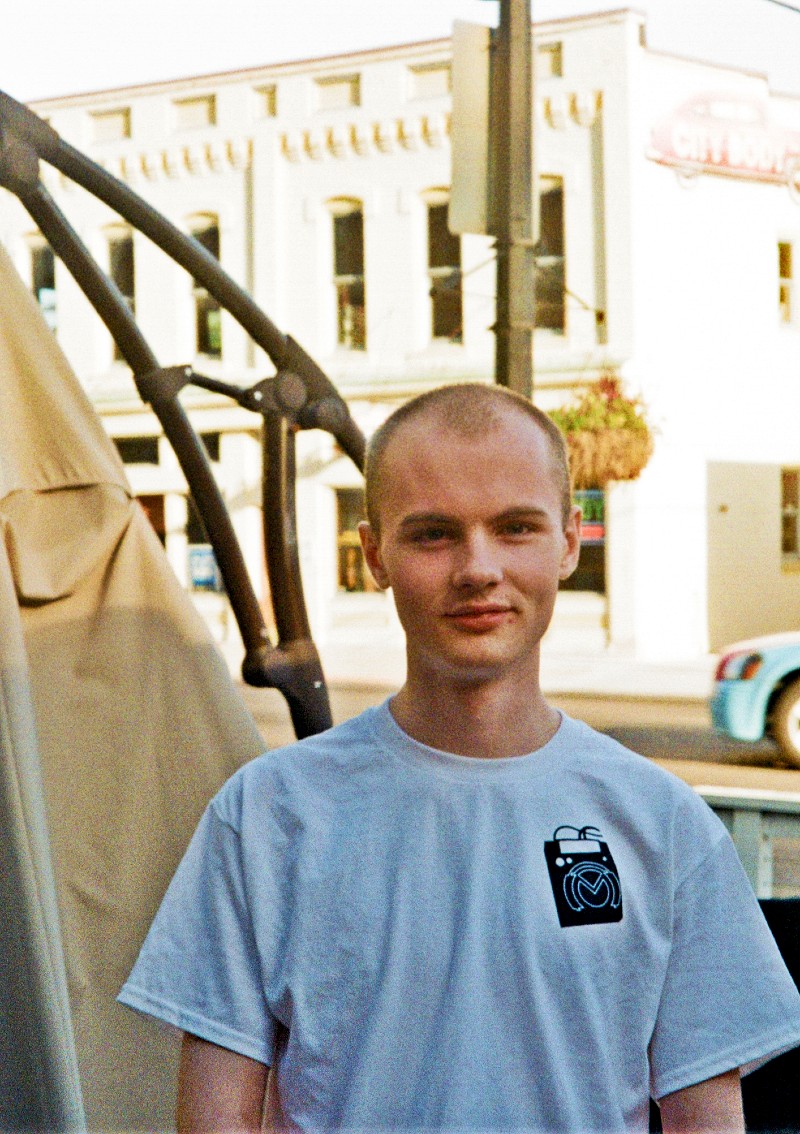Ann Arbor electronic-music producer Jack Withers turns sadness into sound on his new album, "The Price of Beauty"

How does an artist alchemize sadness into something beautiful?
Ann Arbor producer Jack Withers ponders this question on his third album, The Price of Beauty.
Withers has released music consistently since around 2019 and is heavily involved in the electronic music community in Ann Arbor as co-president and graphic designer for the Michigan Electronic Music Collective. His music, with influences from Aphex Twin to Flume, ranges from energetic drum 'n' bass to organic ambient sounds.
The Price of Beauty is Wither's shortest album. It's also his most experimental while at the same time feeling the most grounded, perhaps due to a more pared-down sound.
We talked with Withers about his new album, his work, and what’s next.
Q: When did you start working on this album?
A: The oldest track on the album is “Made of Love”, which I started working on in early December 2021, though the year prior I spent countless hours refining the sound that would become the record. So, in spirit, the album’s life cycle is much longer, and it builds on sonic ideas from my past works. They’re a lineage.
Q: Can you tell me about the inspirations/ origins of the sound and aesthetics?
A: This year someone very close to me got very sick and caused me to rethink how I saw my life and my relationships. The epiphany I had was that the overwhelming sorrow I was feeling came from a place of love for this person, and I realized that all good things in life have a cost; it always takes something out of you to care about something.
This emotional buy-in, though, is what makes life precious and full of flavor. If I hadn’t cared so deeply about this person, I could have avoided my grief. But would I have made that exchange if given the chance? Of course not.
With The Price of Beauty I wanted to comment on how sadness can only exist as a result of care and love, so in its own way, sadness can be celebrated.
Q: Can you tell us more about the sonic lineage of your works? How do you think this album builds upon and expands from your previous album, Something Wicked?
A: It’s hard for me to put in words, but no matter how hard I try to change up my sound between projects there’s always some thread that runs deep through the music that I can’t cut.
SSELFVISIONN was more playful than Something Wicked, which has a darker tone, but both make heavy use of sampling. For me, The Price of Beauty is the most genuine, knitted, and synthesized from scratch—basically no sampling, with a much more homogenous drum sound and more thoughtful melodic elements.
If they were ice cream, Something Wicked is French vanilla and The Price of Beauty is a mango sorbet. SSELFVISIONN is Ben & Jerry's The Tonight Dough.
Q: When did you start making music? What sorts of sounds are you interested in creating?
A: I started making music about seven years ago now, which is crazy because I still know there’s so much for me to learn. Since the beginning it’s been about the technology for me; my music is a celebration of what you can do with computers in today’s age. I’ve never had any real interest in learning a physical instrument. Still, I’ve always had an affinity for the more “natural” and “organic” sounds that can come out of software, so my music tends to tread the line of synthesized and more tactile.
Q: The Price of Beauty track “FPS” feels genre-bending, starting with a more clubby beat that gets deconstructed. How did this track transform into what it is now?
A: A common theme in club music is cyclicity, where sonic elements are introduced, built upon, stripped back, and then reintroduced to create an ebb and flow of energy. With The Price of Beauty I wanted less of a circular motion and more of a linear one, where the tracks are constantly evolving, progressing forward with distinct, non-repeating sections.
"FPS" starts angry but softens, like a person might experience clarity after an argument where they said things they regret. I wanted every track to itself be an emotional arc as much as the entire record is as a whole.
Q: What’s next for Jack Withers?
A: Not sure. I need to think about my career as I leave school so music might take a back seat for a bit. But I don't doubt my next project will look very different from anything I’ve done before.
Katy Trame is a student, poet, public library associate for Pulp, and music writer for The Michigan Daily.


































